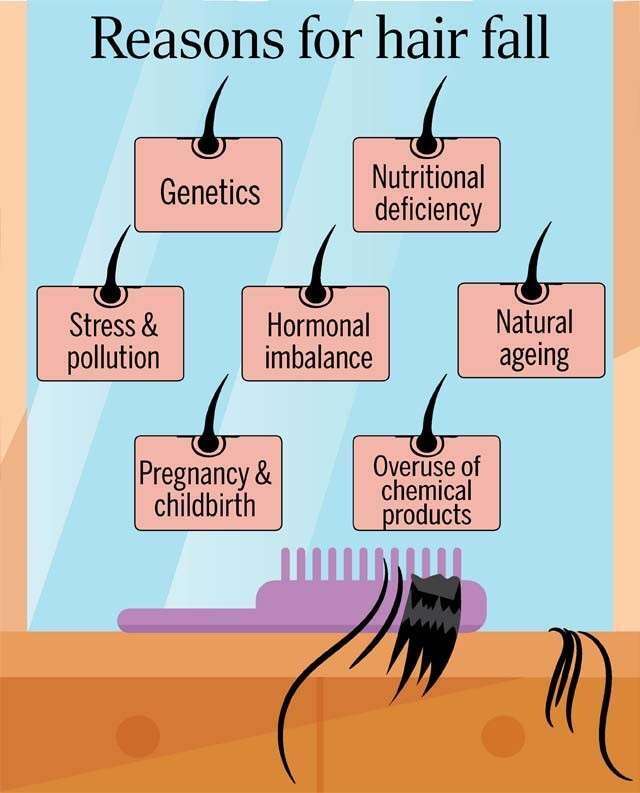
Hair today, gone tomorrow! A woman’s hair is considered her crowning glory, and without the right mane, and the right hairdo, you’re never considered fully dressed! But one of the most common problems that plague most women (more serious than frizz or dull hair, which can be addressed instantaneously), is hair fall. Hair fall is one of the key areas that impact the look, feel and thickness of your mane. Besides impacting how you look, it is also a key indicator of hair health and scalp health. However, there are a lot of factors at play that could potentially cause hair loss. Here’s what they are and hair fall reasons how they can be addressed.
1. Hair Fall Reasons Are Lack Of Protein
2. Hair Fall Reasons Are Genetics Natural Ageing
3. Hair Fall Reasons Are Stress
4. Hair Fall Reasons Are Scalp Health And Nourishment
5. Hair Fall Reasons Are Pollution And The Environment
6. Hair Fall Reasons Are Pregnancy Childbirth
7. Hair Fall Reasons Are Hormonal Imbalance
8. Hair Fall Reasons Can Be An Overdose Of Styling
9. Hair Fall Reasons Are Nutritional Deficiency
FAQs: Hair Fall Reasons
1. Hair Fall Reasons Are Lack Of Protein
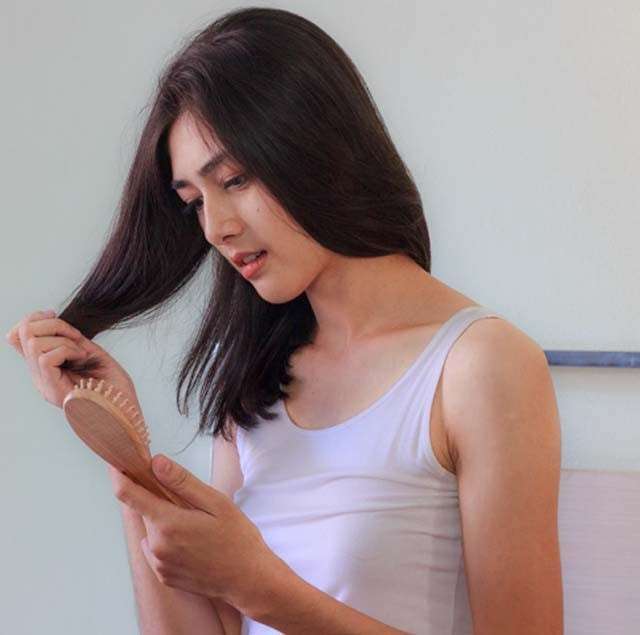
First, let’s understand the science behind hair growth? Visible hair, as we all know, is made of dead cells. Hair growth happens under the scalp, in the hair follicle. When new hair cells are formed, older dead cells are pushed up - and that's why hair grows. Hair is, in fact, made up of a protein called keratin. In fact, the entire human body is fully made up of protein, in that its entire structure is protein.
All the protein we eat is broken down into amino acids, which are used by the liver to create different proteins. So, under the scalp area, there are millions of hair follicles that create keratin from the amino acids we get in food. Hair growth happens in these cells and that is how hair is formed. So protein is literally vital to hold together every strand of hair! If you’re getting inadequate amounts of this in your diet, chances are you’ll be suffering from weak, brittle and limp hair, which falls off.
Opt for protein conditioning treatments at your local salon, which will help with replenishing protein levels in your hair and scalp. It is also ideal to use a biotin-rich shampoo, conditioner and hair masque to help with this. Consuming a diet rich in dairy – cottage cheese, other unprocessed cheeses, ghee, yoghurt – as well as eggs, poultry, legumes, lentils, green beans and limited amounts of soy, will ensure you get an adequate dose of protein to keep your keratin levels intact and your hair in shipshape.
Pro tip: Replenish keratin levels topically and through a protein-rich diet.
2. Hair Fall Reasons Are Genetics Natural Ageing
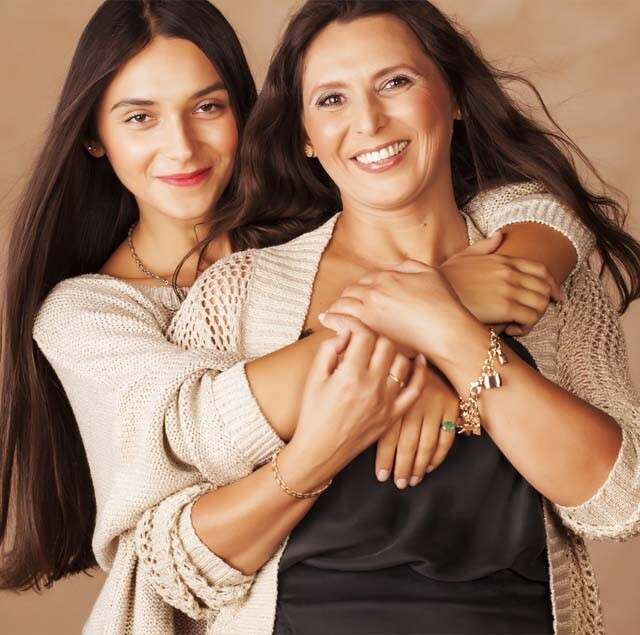
While male pattern baldness is more common than female-pattern hair loss, it is true that your genes can be the cause of your thinning mane! Called androgenic or androgenetic alopecia, you may be more prone to hair fall if the women in your family also suffer from it. While there’s very little you can do to prevent it, a good hair care routine, diet and lifestyle definitely help. However, doctors do prescribe over-the-counter drugs or in cases with extreme and noticeable hair loss, surgery.
Pro tip: Follow a disciplined hair care routine, and seek professional help if your hair fall is excessive.
3. Hair Fall Reasons Are Stress
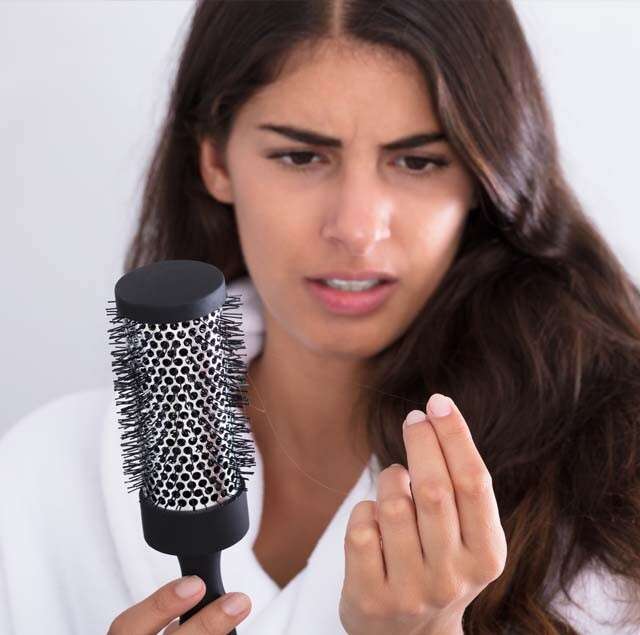
We sometimes downplay the effect of stress in our lives, but it actually has a far-reaching impact! Both physical and emotional stress can cause hair loss, which is called telogen effluvium. It is important to understand that hair has its own cycle of growth, transition, resting and then shedding.
Here, the stress pushes hair follicles into a resting period, while the percentage of hair in the growth period reduces drastically. The most logical way to combat this is to obviously get rid of the stress. If you can’t entirely do that, then make some lifestyle changes – get enough sleep, exercise and me time to fight the negativity within yourself.
Pro tip: Seek a low-stress life, get enough rest and make small lifestyle changes.
4. Hair Fall Reasons Are Scalp Health And Nourishment
Your scalp is the skin on your head, and the base for your hair follicles, so how you nourish it and how healthy it is has a direct impact on your hair follicle health. When your scalp is not properly looked after, dryness and fungus form, which in turn results in flaky scalp and dandruff. This does not bode well for hair thickness. Dead hair follicles form on the scalp and hinder hair growth while promoting hair loss. Scalp hygiene and nourishment is therefore of paramount importance, and for this, a proper hair care routine, with equal emphasis on oiling the hair, shampooing it and conditioning it is important.
First, start off with oiling the hair. If you have a dry scalp, do this every alternate day, while those with oily scalp can get it done once or twice a week. Massaging the scalp can increase blood circulation, and boost hair growth from within, while simultaneously hydrating and nourishing the scalp. Use coconut oil, castor oil and argan oil for best results. Ayurveda swears by bringhraj oil, which can be mixed with any carrier oil like sesame and used. Warm the oil and apply it all over the scalp. Also coat the hair strands well, to combat any dryness or split ends.
Use a biotin-rich shampoo or one that addresses specific hair needs with ingredients that fight hair loss. Be careful to wash your hair gently and not overload on the shampoo, since you may strip your hair of natural oils. Follow it up with a conditioner to soften your hair.
For more details on the benefits of oiling, and how to shampoo your hair, take a look at this video!
Pro tip: Give your hair a warm oil massage, followed by a gentle shampoo and conditioning routine.
5. Hair Fall Reasons Are Pollution And The Environment

Heat, dust, pollution and grime can cause both dry hair and scalp, impacting both hair quality and hair thickness. Whether you’re indoors in the air conditioning, or outdoors with the harmful UV rays of the sun, exposure to harsh environmental factors can strip the hair of all its nutrients, leading to hair loss.
Deep condition your hair every alternate day to repair dryness and split ends. Wash your hair well twice a week, focussing on the quality of water. This may seem overrated, but there’s a reason people recommend scarves, hats and bandanas while stepping out in the sun. You’ll minimise unwieldy tangles and knots, and also reduce the risk of drying out your hair.
Pro tip: Opt for a hair mask that has deep conditioning properties, and protects against damage and dryness.
6. Hair Fall Reasons Are Pregnancy Childbirth
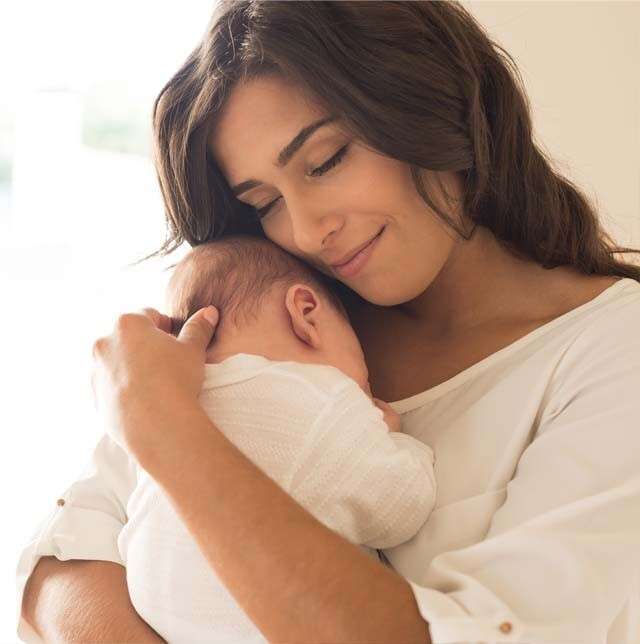
Often, the process of pregnancy and childbirth can trigger physical changes in your body, which then affect your hair adversely. This is more common post-childbirth rather than during pregnancy. The primary reason is the fact that estrogen levels, which have risen during pregnancy and are responsible for your thick hair throughout those nine months, suddenly drop once you give birth. This, combined with possible vitamin deficiency, can lead to postpartum hair fall.
Deal with this by visiting your gynaecologist or trichologist, who will most likely give you a diet chart and supplement to combat this, as well as suggest certain lifestyle changes and shifts in what products you use. Until your hair stops falling, you can style and layer your hair to look fuller and better!
Pro tip: Seek professional medical help and advice to deal with postpartum hair fall.
7. Hair Fall Reasons Are Hormonal Imbalance
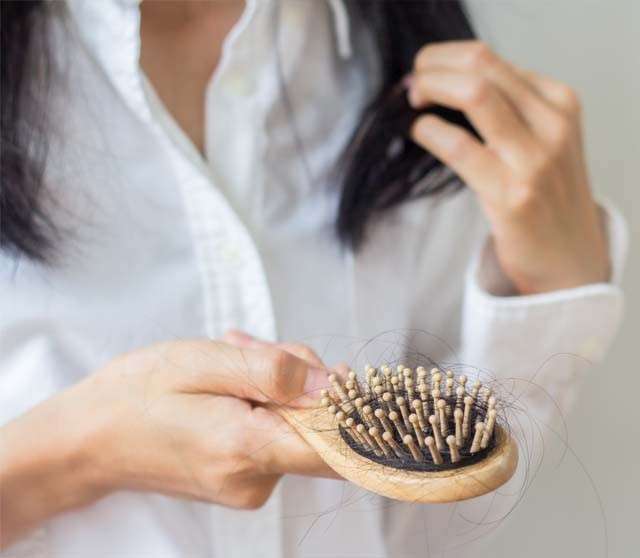
Blame it on the hormones! No, this time, it’s really true! Hormonal imbalances in women are one of the most common causes of unnatural hair fall. Thyroid problems, going on and off contraceptives, are just some of the reasons your hair could be falling off in clumps! PCOS (polycystic ovary syndrome), antidepressants, blood thinners, and even autoimmune disorders could be the cause of thinning hair. Run all the prerequisite tests to figure out where the problem lies, and then visit a doctor to address it at the earliest.
Pro tip: Seek professional help to sort out hormonal imbalance problems at the root.
8. Hair Fall Reasons Can Be An Overdose Of Styling
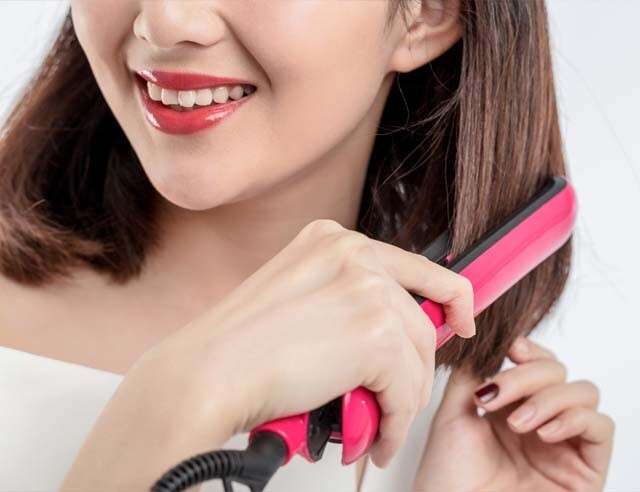
All said and done, styling products with harsh chemicals do affect the hair and scalp adversely. From blow-drying to ironing, from bleaching to colouring, all of it weakens the hair strands and hair follicles. While a lot of these treatments affect the hair strands (which means you can just chop off the hair and wait for fresh, glossy, healthy hair to grow back), some of them do actually impact the hair follicles and hamper healthy hair growth.
The logical solution is to cut back on styling methods and products. Don’t use a blow dryer for instance, and let your hair dry naturally. Switch from chemical products to those that are more natural. Use anti-frizz products and consider investing in a good hair serum that may soak into your hair overnight, or in lightweight hair oil like Argan oil, to counter the ill-effects of all that styling.
Pro tip: Cut back on styling when it isn’t required, and counter the ill effects by using a nourishing hair serum.
9. Hair Fall Reasons Are Nutritional Deficiency
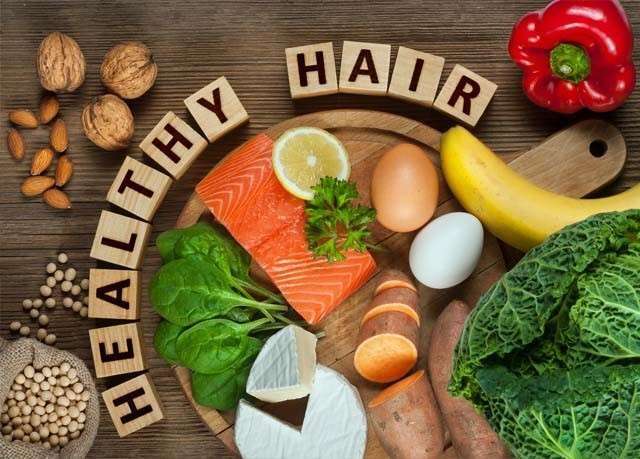
If you’re doing everything else right, but not getting enough nutrition from your diet, chances are you’ll find it affecting hair loss as well. We’ve already discussed protein and its importance, but there are other nutrients you should include in your diet as well.
- Omega 3 fatty acids are essential to keep your scalp and hair follicles from drying out, reducing inflammation (which is a major cause of hair shedding) and promoting hair growth. Try salmon – it is one of the best sources. Other fish like mackerel and sardines are also a great go-to option. Vegetarians can get their daily dose of Omega 3 from avocados, flaxseeds, olive oil and walnuts, which are some of the most potent sources of this nutrient.
- Vitamins are the lifeline of your body’s nutrition, and also your hair’s. Vitamin C needs to be consumed to reduce free radicals and maintain collagen levels in the hair follicles, to make sure hair remains breakage-free. It is also an antioxidant and protects cells found in the scalp. Eat a generous helping of fruits like guavas, strawberries, kiwis and oranges.
- Vitamin A, which comes from beta-carotene, produces sebum which keeps your scalp from drying out. Sweet potatoes, carrots, squashes and leafy greens are Vitamin A-rich foods. Animal liver is another great source of this essential nutrient. However, beware of excessive intake of vitamin A, which can also affect hair health adversely.
- B Vitamins are perhaps the most essential for hair and skin health! Vitamins B1 (thiamin), B2 (riboflavin) and B5 (pantothenic acid) are good for hair flexibility, strength and overall wellness. Biotin or Vitamin B7 is especially essential for hair growth, while folic acid deficiency could cause premature greying. For your dose of B Vitamins, eat eggs (don’t leave out the yolks – that’s where most of the nutrition comes from), beans, various fresh fish, oatmeal, yoghurt and free-range chicken and turkey.
- Selenium is a trace element that protects the scalp’s tissues from oxidation. Not having enough equals not much hair growth! It is found in mushrooms, sunflower seeds, brazil nuts, brown rice, whole grain rye and crabs.
- The body also needs at least 18 mg of iron a day to ensure healthy hair growth and strength. This can be found in foods like tofu, greens (yes, they really are important for hair!) and flaxseeds.
- Silica is important for the absorption of the vitamins you consume. Silica-rich foods include bean sprouts, cucumbers and red bell peppers.
Pro tip: Eat a diet rich in protein, Omega 3 fatty acids, vitamins C, A, B, selenium, iron and silica.
FAQs: Hair Fall Reasons
Q. What home ingredients can I topically apply to ensure healthy hair growth?
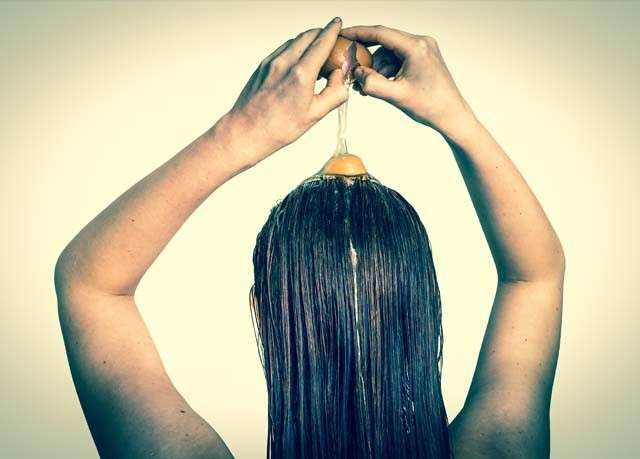
Eggs, rich in protein and biotin, help when applied as a hair mask and left for 15-20 minutes. Yoghurt and buttermilk are both great options to condition the hair, stop breakage and arrest hair loss. Ayurveda recommends the use of fenugreek and fenugreek seeds, crushed and applied on the scalp, to treat against dandruff and hair fall. Amala is a Vitamin C-rich fruit, lesser expensive and more easily accessible than other citrus fruits, which is said to boost hair health according to Ayurvedic texts. Brahmi and Triphala infusions, moringa leaves and leaf powder, curry leaves are other foods to apply for hair fall. Watch this video for the basics of hair care.
Q. Does eating almonds help hair growth?
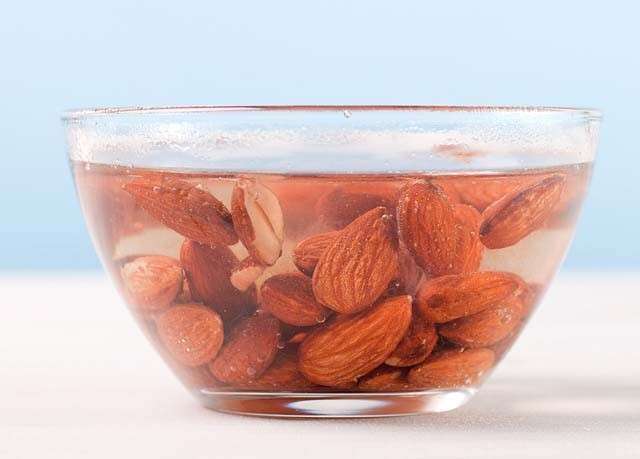
Eating soaked almonds, not the raw ones, is good for hair since they contain almost all the nutrients your hair needs – fibre, protein, omega 3 fatty acids, vitamin E, zinc and calcium. Soaking the almonds overnight allows the toxins present in the coating to separate from the nut, and also reduces the gluten content in the almond.
Q. Do over-the-counter supplements help?
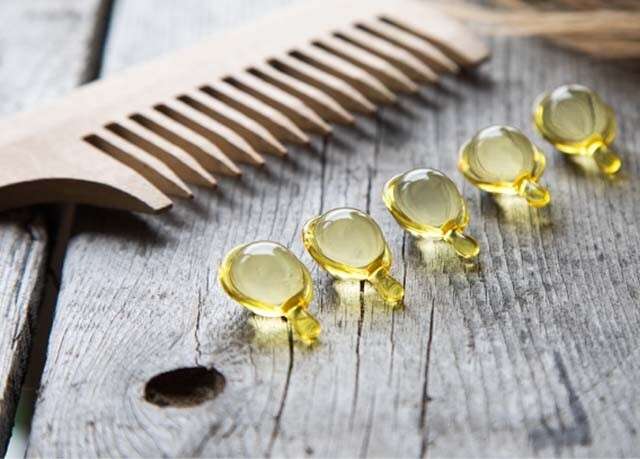
Over-the-counter supplements may aid you in your quest for beautiful hair, but they are called supplements for a reason. So don’t assume you can forego proper hair care and nutrition and just pop a pill. Rather, everything needs to be done in conjunction. Supplements like biotin, Vitamins D and A are common, and omega 3 supplements can be used to enhance hair health, but take only FDA-approved drugs, and that too, only under prescription.